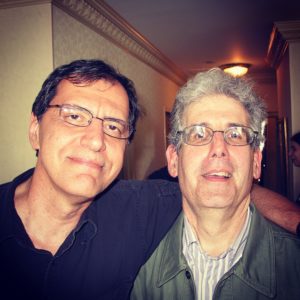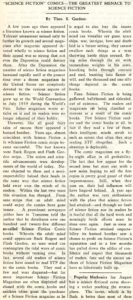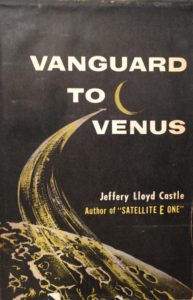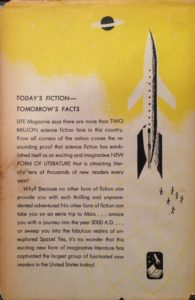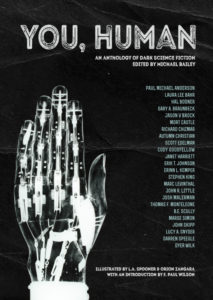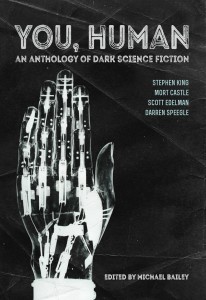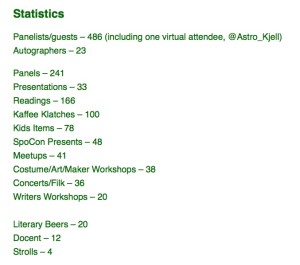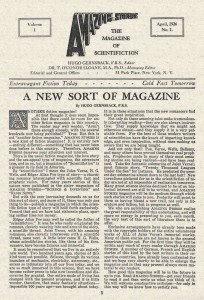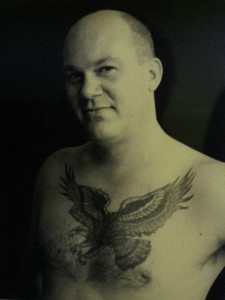Follow Scott
Recent Tweets
- Waiting for Twitter... Once Twitter is ready they will display my Tweets again.
Latest Photos
Search
Tags
anniversary Balticon birthdays Bryan Voltaggio Capclave comics Cons context-free comic book panel conventions DC Comics dreams Eating the Fantastic food garden horror Irene Vartanoff Len Wein Man v. Food Marie Severin Marvel Comics My Father my writing Nebula Awards Next restaurant obituaries old magazines Paris Review Readercon rejection slips San Diego Comic-Con Scarecrow science fiction Science Fiction Age Sharon Moody Stan Lee Stoker Awards StokerCon Superman ukulele Video Why Not Say What Happened Worldcon World Fantasy Convention World Horror Convention zombies
©2025 Scott Edelman
Time travel back to the 2007 Nebula Awards weekend
Posted by: Scott
Tags:
Craig Engler, Ellen Datlow, Gardner Dozois, Gordon Van Gelder, James Patrick Kelly, Joe Haldeman, John Joseph Adams, John Kessel, Michael Swanwick, Nebula Awards, Paul Witcover, science fiction
Posted date:
May 16, 2017 |
No comment
There was no Instagram 10 years ago when we gathered in New York City for the 2007 Nebula Awards weekend—but if it had existed, the festivities might have looked something like this.
Hanging out with John Kessel
Carol Tilley—who’ll be speaking Thursday at the National Archives about letters kids wrote to the Senate defending comics in 1954—just posted over on Facebook the front page from the August 25, 1940 issue of Fantasy News … and I can’t resist sharing one part of it here.
Thomas S. Gardner, whose short fiction had been published in the ’30s in Wonder Stories, complained that the new science fiction comics were so inane as to cause some readers to give up on science fiction entirely. Plus comics (or so he claimed) were even damaging the reputation of science fiction—and the fans themselves.
Science Fiction is being guffawed, ballyhooed, and ridiculed out of existence. The readers and magazines are being classified as morons as a result of the comic books.
Luckily, though, the prescient Gardner predicted comic books wouldn’t be around for long.
The comic magazines are a fly-by-night affair in all probability. The fact that few appear for the second issue but start out with a new series hoping to sell the first copies is pretty good proof of their impermanence.
Gardner lived until 1963, after the Golden Age of comics had ended and the Silver Age had begun. Wonder whether that was long enough for him to change his mind?
You can read the issue in its entirety over at FANAC.
It’s time for Kansas City BBQ with David D. Levine on Episode 19 of Eating the Fantastic
Posted by: Scott
Tags:
David D. Levine, Eating the Fantastic, food, science fiction
Posted date:
September 30, 2016 |
No comment
As I told you before, I ate a lot of BBQ during this year’s Worldcon in Kansas City. Unsurprisingly, four of those meals became episodes of Eating the Fantastic. The first of those four, and one of my favorites, was recorded at Danny Edwards Blvd Barbecue. (Danny Edwards’ family, BTW, has been barbecuing in Kansas City since 1938.)
I was joined for lunch there by writer David D. Levine, who won the Hugo Award for his story “Tk’tk’tk,” and whose debut novel novel Arabella of Mars had been published the month more.
We talked about the things being a science fiction fan for so long taught him about being a professional science fiction writer, what it was like contributing to George R.R. Martin’s Wild Cards universe after having read the series since Day One, how pretending to live on Mars for two weeks helped him write his newly published novel Arabella of Mars, and much more.
Here’s how you can share the BBQ— (more…)
An exciting and imaginative NEW FORM OF LITERATURE!
Posted by: Scott
Tags:
Jeffery Lloyd Castle, science fiction, Vanguard to Venus
Posted date:
September 12, 2016 |
No comment
I visited yesterday with a friend who’s winnowing down his book collection, and as we reviewed what remained on his shelves, we reminisced about those we’d both read a long time ago, including favorites by the likes of James H. Schmitz and Harry Harrison. He loved them so much he couldn’t bear to part with them.
But there was one book he was hanging on to not because it was so good, but because it was so bad.
He called Vanguard to Venus, by Jeffery Lloyd Castle, the worst science fiction novel he’d ever read.
I’d never heard of the 1957 novel or its author, but one thing was clear—whatever the quality of the words between the covers, the book’s back cover blurb was one of the best I’d ever read.
Check out its bold claims, including an ALL CAPS pronouncement that science fiction is “an exciting and imaginative NEW FORM OF LITERATURE that is attracting literally tens of thousands of new readers every year.”
How could you not love a blurb like that?
REVEALED: The title of my science fiction short story in the anthology You, Human
Posted by: Scott
Tags:
Michael Bailey, my writing, science fiction
Posted date:
June 4, 2016 |
No comment
Late last year, when I told you about the sale I’d made to the science fiction anthology You, Human, I failed to tell you the title of the story. That was deliberate.
Michael Bailey, the book’s editor, wanted to reveal the full Table of Contents at once. So I held off. Until now.
Because Michael has shared all.
And the title of the story you’ll be able to read later this year in You, Human is …
“101 Things to Do Before You’re Downloaded”
Check out the full list of authors—and the titles of their stories—over on the Written Backwards blog.
A few days ago, I teased a new sale, but was unable tell you to which anthology I’d sold that short story until the editor went public with the news. Well, Michael Bailey’s done that now over on Facebook, so I’m free to share that next year, I’ll be in the anthology You, Human from Dark Regions Press, along with a few other writers whose names you might find familiar—
—such as Stephen King, Mort Castle, and Darren Speegle.
Ours are the only four names announced and visible on the cover so far, because for his anthologies, Michael likes to spill a new name every few days so as to bring as much drama as possible to his table of contents reveal. He promises to reveal the names of two more writers over on his Facebook page Thursday.
As for the title of the 5,850-word tale—which happens to be my fourth short fiction sale of 2015 (yay, me!)—Michael is holding off on posting all of those until his full roster is complete, so I’ll keep it to myself, too. But I will say one thing about it—I like this title so much I’m considering it as the title story for a future collection.
If you attended Sasquan—the 73rd World Science Fiction Convention—in Spokane earlier this year, deciding how to best spend your time was probably tough, for inside the 148-page program book each attendee received were listed 241 panels alone, plus multiple readings, presentations, kaffeeklatsches, and more.
Things were quite different in 1974, however, the year 19-year-old me attended his first Worldcon—Discon II, the 32nd World Science Fiction Convention. (more…)
Sasquan begins today here in Spokane, and normally I wouldn’t have bothered showing up until last night, but I arrived Sunday instead, because I had things to do (some of which I can’t tell you about until my deeds are revealed by others first) and people to see.
Well, not only people. Also … robots.
Because a 50-minute drive outside Spokane, in beautiful Elk, Washington, there exists the incomparable Robot Hut, at which I spent several hours Tuesday afternoon. While there, I was so gobsmacked it was difficult to do more than say “Wow!” over and over and over again.
What’s the Robot Hut? This is the Robot Hut!
And that’s John Rigg, a man who’s assembled what is (as far as I know) the world’s largest collection of robots and robot memorabilia. Some he’s bought, others he’s traded for, and many he’s built himself. (more…)
Read the first editorial from the first science fiction magazine
Posted by: Scott
Tags:
Hugo Gernsback, old magazines, science fiction
Posted date:
March 24, 2015 |
1 Comment
I sure I must have read the April 1926 Amazing Stories before as part of my desire to see how this thing of ours began, but I have no memory of reading Hugo Gernsback’s editorial in that first issue of the first science fiction magazine.
Wait, no—let me correct that. Because Gernsback didn’t call it a science fiction magazine. He called it a scientifiction magazine.
And what was scientifiction? For those who’ve never heard the term, let Gernsback explain—
By “scientifiction” I mean the Jules Verne, H. G. Wells, and Edgar Allan Poe type of story—a charming romance intermingled with scientific fact and prophetic vision.
And from that statement an entire genre, far more varied that he could have ever imagined (or, I’m guessing, would ever have been comfortable with, as scientific education is no longer our main goal) has sprung forth.
Check out his mission statement from 89 years ago.
Unearthing my 1984 interview with Thomas M. Disch
Posted by: Scott
Tags:
Harlan Ellison, Isaac Asimov, John Crowley, Last Wave, Orson Scott Card, Ray Bradbury, Ron Goulart, Samuel R. Delany, science fiction, Thomas M. Disch, Vladimir Nabokov
Posted date:
March 1, 2015 |
1 Comment
More than 30 years ago, I conducted a lengthy interview with Tom Disch. How lengthy? Once transcribed, it came to nearly 18,500 words, and took up 48 pages of the Winter 1986 of Last Wave. I’ve been thinking of that interview ever since my recent share of an equally intensive interview with Chip Delany, and decided the conversation was worth reviving here. Tom, who was one of my instructors at Clarion in 1979, deserves to be remembered.
John Clute wrote this about Tom in the Science Fiction Encyclopedia:
Because of his intellectual audacity, the chillingly distanced mannerism of his narrative art, the austerity of the pleasures he affords, and the fine cruelty of his wit, Disch was perhaps the most respected, least trusted, most envied and least read of all modern sf writers of the first rank.
I’ve always been in awe of that description. Read on to see whether you agree it was deserved.
But before you begin, I feel a couple of trigger warnings are in order:
First—as part of a discussion of how Tom’s homosexuality might have affected his writing, I raised the issue of sex change operations in the context of how certain editors were biased against life choices choices they couldn’t understand. I cringed just now reading how I framed that question, because in the intervening three decades since I asked it, I’ve come to believe that’s a lousy term to describe what’s actually happening under those circumstances, which is the bringing about an alignment of one’s inner and outer selves. I’d never ask that question in the same way today—because I now think of the process as being not a change but a gender confirmation—and I’m sorry I raised the topic that way then. But in the interests of historical accuracy and not ducking responsibility, I’m leaving in the question as it was asked in 1984.
And as an addendum to that—if I’m putting my foot even more firmly into my mouth with the way I’m phrasing this trigger warning and apology, please feel free call me out on that, OK? My friends already know (I hope) that they’re free to do that, but I’d like the rest of you to know it, too.
As for second trigger warning—Tom makes a joking reference to John Norman novels and rape which I worry could be triggering for some. If you want to skip that completely, jump over the answer he gives to the question I raise about his review of a Ron Goulart novel.
Now that I’ve taken care of that—hoping that my attempts haven’t made things worse—here’s the entirely of the interview, as it appeared in the final issue of Last Wave.
Thomas M. Disch is one of the more talented and controversial figures in the science fiction field. His body of work encompasses short stories, novels, poems, opera libretti, essays, book reviews, and now even an interactive novel. In every instance he has chosen to work at a level of ambition of which only a handful of other genre writers share in the attempt. He has created works of a remarkably high quality, and at the same time enraged many for his failure to fall into the lockstep of genre requirements. The following interview took place on August 11, 1984 in Tom Disch’s Manhattan apartment.
Last Wave: I think of you as being a joyful writer, as opposed to being the depressing writer which many other people seem to paint you. In your early novel The Genocides, for instance, which is one often given as an example of a depressing work because the benign, indifferent aliens win, I find triumphal joy, for the protagonists in it do triumph with dignity against great odds over the human evil around them. In your recent On Wings of Song, which I’ve read one reviewer claim to be a cynical book, I see a happy ending: David Weinreb does get free and fly. For some reason many people prefer to see him as dying. In rereading these two works and all else inbetween, I just don’t see the cynicism which the overwhelming majority of readers chooses to focus on. Why do you think there is this myth of your work being such a downer? (more…)

